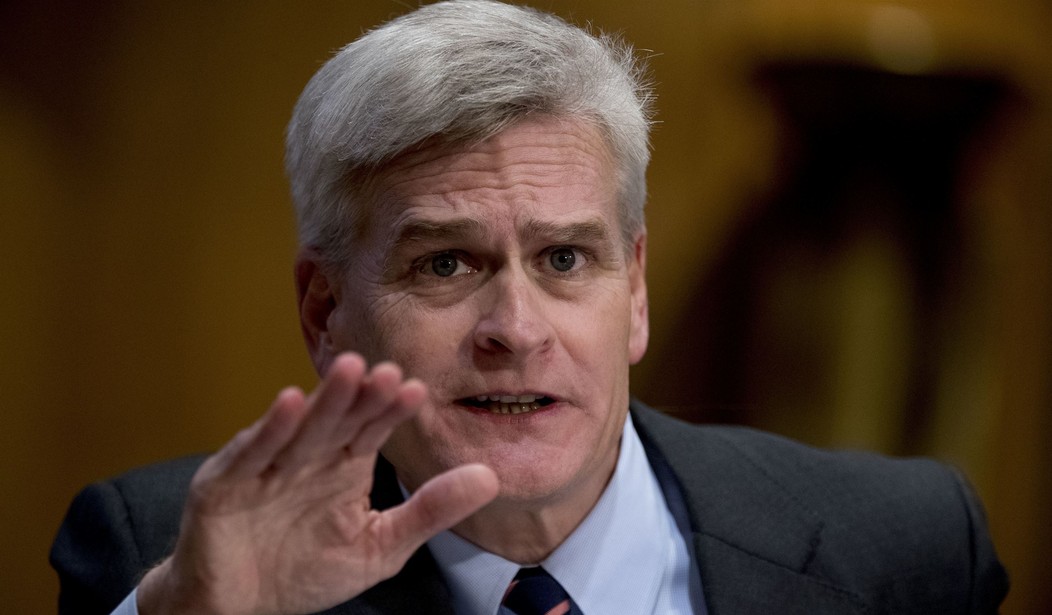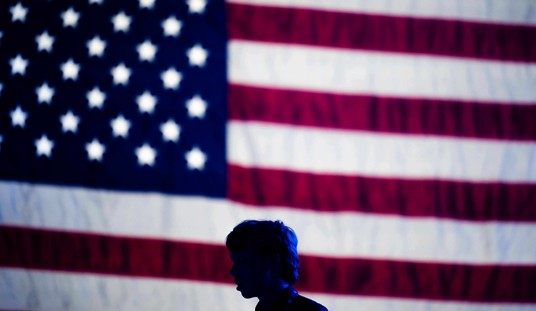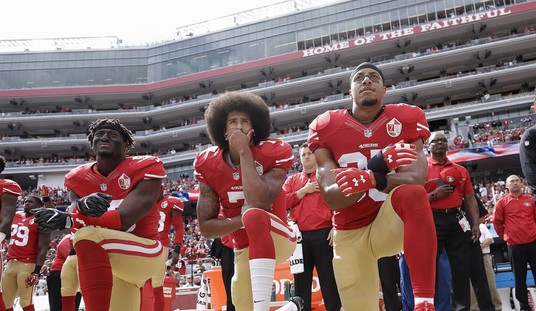U.S. Senator Bill Cassidy ran for re-election in 2020 as a pro-Trump conservative. After getting re-elected, he turned around and voted to convict then-president Donald Trump in his impeachment over the riot at the U.S. Capitol on January 6.
Ever since his vote to convict Trump, Cassidy has not exactly been loved by a ton of Republicans he represents here in Louisiana.
He was a proponent of Biden's massive infrastructure bill, even though he had no clue what was actually in it and was embarrassed on local radio for it.
When asked about that portion of the bill that says, "The term ‘‘per-mile user fee’’ means a revenue mechanism that - is applied to road users operating motor vehicles on the surface transportation system; and is based on the number of vehicle miles traveled by an individual road user," Cassidy told KEEL that that portion of the bill wasn't included.
"It's not in there," said Cassidy, insisting that the per-mile tax proposal mentioned in Section 13002 doesn't exist, "That's not in there."
But when the exact verbiage of the bill was read to him, the Senator seemed to change his tune. "There is that section. That's not the section I wrote. But I promise you there is no user fee being assessed," Cassidy then said, "I promise you there is not a user fee being assessed. It's a pilot. They could be taking vehicles that are belonging to the federal government and we want to see how it works."
Cassidy also came out this week against the sending of National Guard troops to the border - something the governor of his state, Jeff Landry, is doing.
When it came to the disastrous border deal that came out of the Senate in recent weeks, he attacked Trump and other conservatives over the "5000 illegals a day" language, insisting it wasn't in the bill and loudly demanding "Don't be ignorant! Read the bill!"
(Note: Upon reading the text, that language was, in fact, in the bill.)
But there’s another reason why Louisiana Republicans might have a problem with Cassidy.
For at least five years, Cassidy has been trying to severely rein in the 340B drug discount program, which as previously noted here now benefits a ton of rural, working-class people in red states—like, well, Louisiana. Some defenders of that program would say Cassidy’s efforts have been so drastic that “kill the program” is a better description of what he is trying to do than even just “rein in.”
Cassidy’s opposition to the program goes back a ways. A bill he introduced in 2018 would have banned new enrollments by hospitals in 340B for two years, flat out. His press release about it literally says, "The bill would prohibit new enrollments in the 340B program for at least two years..."
In July 2023, Cassidy wrote an anti-340B op-ed that complained that the program “costs pharmaceutical companies billions.” Let’s set aside the tone-deafness of complaining about Big Pharma poverty at a time when most conservatives’ eyes were popping out about the huge profits Big Pharma had made in the wake of things like vaccine mandates, new anti-obesity drugs coming online, and more.
It appears that Cassidy's source for his information was an op-ed written by a former Big Pharma employee who previously worked for Merck and a company bought by Pfizer, among others. That individual then worked for the Community Oncology Alliance, which is heavily funded by Big Pharma and I’m sure totally coincidentally opposes the 340B drug discount program.
Here is the managing director of the Community Oncology Alliance favorably reposting an op-ed from the Boston Herald about how 340B may need to be "killed."
Fast forward to 2024, and Cassidy has made a whole investigation of the 340B program something of a personal crusade in the Senate.
This is sort of weird for three reasons. First, as noted, it seems discordant with the politics and priorities of the state he represents. Second, as a doctor, Cassidy actually used to work for a 340B entity (Earl K. Long Medical Center; you can see it benefited from 340B here). Third, the people really focused on tearing down 340B are pharmaceutical companies. Cassidy is a doctor, not a pharmaceutical company. So what gives?
As always in Washington, DC, it’s worth having a look at financial interests. Fun fact: While Cassidy may have a bevy of non-financial reasons to be lining up with Big Pharma on 340B, throughout the 2018-2024 period, he also has had a bevy of financial ones to do so also.
A review of various financial disclosure documents evidence Cassidy’s wife having held between $1,000 and $15,000 in Novartis stock (and multiple transactions involving Novartis stock) between the bottom of 2018 and early 2019.
She also held Amgen stock—she sold between $1,000 and $15,000 of it in December 2018, and another $1,000-$15,000 in November 2020.
In March 2020, she apparently bought between $1,000 and $15,000 of Johnson & Johnson stock. I wonder who started working on the kind of pharmaceutical product the government might try to mandate everyone get right around then—and which might yield huge gains for shareholders?
It's not clear from filings that were accessible at the time of searching when Cassidy’s wife disposed of that stock, but it looks like at some point post-2020, the Cassidys decided to move all their investments into funds instead of individual stocks. That’s probably smart—among other things, it makes this kind of questioning of Cassidy’s possible personal financial motives for particular policy moves a little less easy—yet still not impossible.
Of note when it comes to money, Cassidy’s most recent Annual Report shows he and his wife being invested to the tune of $50,001-$100,000 in Vanguard's Wellesley Income Admiral Fund (VWIAX). What is that fund invested in? Well, of its top 9 holdings, three are pharmaceutical companies.
None of this is to say Cassidy is trying to put the screws to 340B because it will make him richer (though to be clear, it would make at least his wife richer). It is to say that Cassidy appears to have a conflict of interest that he or his staff may not even be attuned to—and that it’s awfully hard for defenders of 340B to see him as being a straight shooter or honest broker where this debate is concerned.
Optics matter a lot in politics, and the optics of Cassidy being one of the most aggressive critics of 340B given the demographics of his state, the GOP base here, and where his family has put its money are not good. At a minimum, some clean-up may be in order.












Join the conversation as a VIP Member